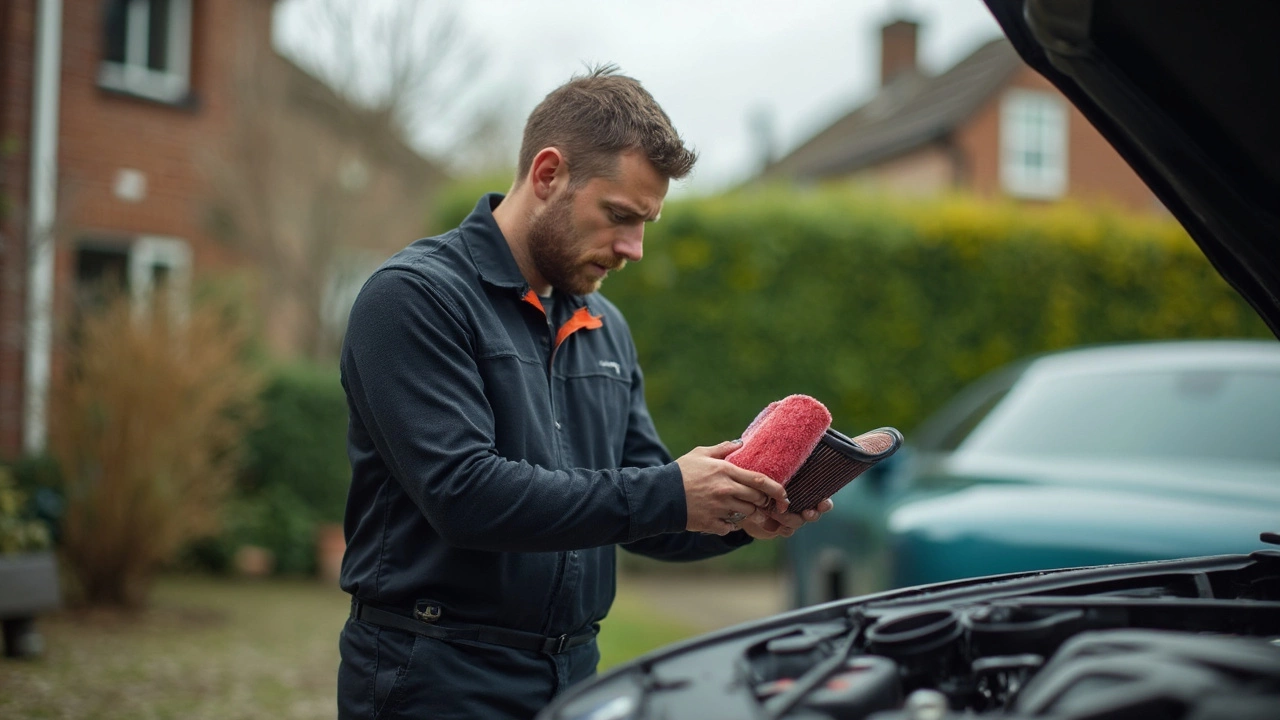Engine Damage: What Happens and How to Stop It
Ever heard that rumbling noise and thought, "My engine is dying?" You're not alone. Engine damage is one of the biggest wallet‑drainers for car owners, but most of it is avoidable. Below we break down the usual culprits and give you straight‑forward actions you can take right now.
What Usually Hacks Your Engine?
First, know the usual suspects. Over‑heating tops the list. When coolant drops low, the metal inside gets too hot and can warp or seize. Check the coolant level weekly and top it up with the correct mix. A leaky radiator or a busted hose will cause the same problem, so look for puddles under the car.
Second, oil neglect. Oil lubricates the moving parts. Without enough pressure, friction builds and metal wears down fast. If the oil light comes on, stop and add oil immediately. Change the oil and filter as the manufacturer recommends – usually every 5,000‑7,500 miles for modern synthetic blends.
Third, aggressive driving. Pounding the accelerator, especially when the engine is cold, forces extra stress on pistons and valves. Let the engine warm up for a minute before you floor it, and avoid hard revs until the oil circulates properly.
Fourth, fuel quality. Bad gasoline can leave deposits that clog injectors and spark plugs. Stick to reputable stations and consider a fuel system cleaner every few thousand miles if you drive a lot.
Finally, neglected maintenance. Ignoring a check‑engine light, skipping scheduled tune‑ups, or using the wrong spark plugs can all lead to misfires, which overheat the combustion chamber and damage the head gasket.
Simple Steps to Keep Your Engine Healthy
Now that you know the villains, here’s a quick checklist you can follow every month:
1. Inspect fluids. Coolant, oil, transmission fluid, and brake fluid should be at the right level and look clean. Top up or replace if they look dirty or have a burnt smell.
2. Keep the cooling system clean. Run the heater on high for a few minutes before turning the car off – this circulates coolant through the engine block and helps prevent hot spots.
3. Use the right oil. Check the owner’s manual for viscosity and type. Synthetic oil usually offers better protection, especially in extreme temperatures.
4. Replace filters. Air and fuel filters stop grit from entering the engine. A clogged air filter makes the engine work harder and can cause overheating.
5. Listen and feel. Strange sounds, vibrations, or a loss of power are early warning signs. Don’t wait for a big repair bill – get a mechanic to look at it right away.
By staying on top of these basics, you’ll cut down the chances of a blown head gasket, a seized engine, or expensive internal repairs. Remember, an engine is a set of moving parts that need oil, cooling, and clean fuel to run smooth. Treat it right, and it will treat you back with years of reliable mileage.
If you ever wonder whether a modification like a cold air intake or performance exhaust could affect engine health, check the specific guidance for that part. Most upgrades are safe when installed correctly, but skipping a tune or using cheap components can raise engine temps and cause damage.
Bottom line: engine damage isn’t inevitable. Regular checks, proper fluids, and sensible driving keep your motor humming. Stick to the checklist, react quickly to warnings, and you’ll save time, money, and headaches.
Does a sport air filter actually hurt your engine, or is that just a myth? This article digs into how sport air filters really work, what risks they might bring, and how to keep your engine safe if you want more performance. We'll talk about everything from installation mistakes to overlooked maintenance. You'll get practical advice so you can make an informed choice about whether or not a sport filter is right for your car.

